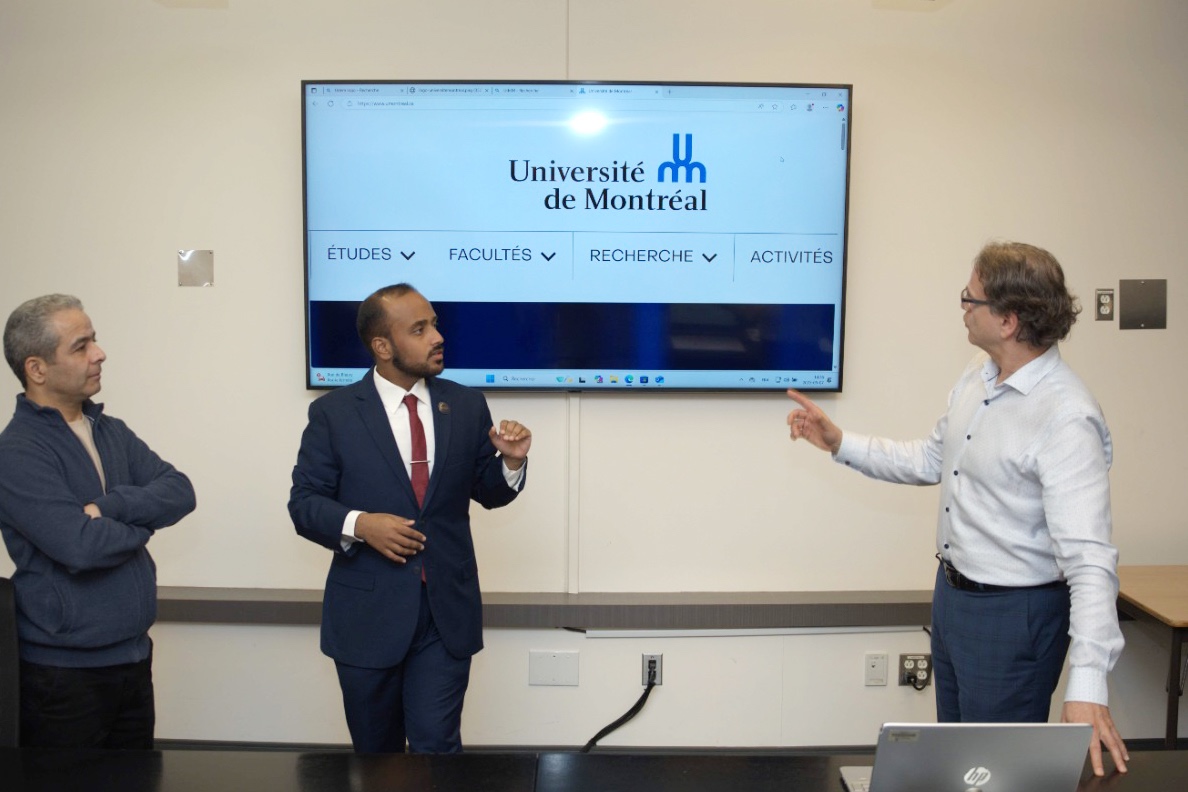As part of its research tour in Canada this May and at the invitation of the University of Montreal, TRENDS Research & Advisory participated in a lecture titled “The Contemporary Arab World: Two Intersecting Perspectives,” where TRENDS researchers presented future perspectives and insights into how to understand the new transformations in the Middle East and North Africa (MENA) region.

In the lecture, moderated by Dr. Patrice Brodeur of the University of Montreal, Mohamed Al-Dhuhoori, Senior Researcher and Deputy Director of Research Department at TRENDS, said that the lecture took a deep look into the MENA region from a broader perspective, and explored various narratives that can help specialists understand the transformations in the region.

A Complex Political Landscape
Al-Dhuhoori noted that the lecture highlighted the region’s strategic position on the global map, shedding light on the interplay of major powers, such as the United States, China, and Russia, and their influence on the region’s geopolitical landscape. He argued that this perspective offers a broader and deeper understanding of the complex political dynamics unfolding in hotspots like Syria, Gaza, Iran, and Yemen. By analyzing these developments, we can assess what might happen next, and determine where countries might work together or collide.
The Deputy Director of the Research Department noted that these elements help in analyzing the complex political and strategic trends occurring in the region, and contribute to the identification of emerging challenges and opportunities. He added that the purpose of the lecture was to enable professionals to gain a deeper understanding of the MENA region.

A Rising Superpower
Dr. Wael Saleh, Political Islam Affairs Advisor at TRENDS and Director of TRENDS Canada Office, delivered a research paper titled “From the Middle East to the Middle West.” He argued that there is a growing belief in the Arab world that, for China to fully assume its role as a global superpower in the coming years, it will need to rely on the Arab world as a strategic ally, much like the United States did with Europe after World War II to cement its global dominance.
He explained that China has increasingly adopted the term “Middle West” instead of “Middle East” in an effort to move beyond the traditional Western conceptual framework and reposition itself geopolitically as the center of a new world.

The «Middle West»
Dr. Wael Saleh explained that the power of this conceptual shift – China’s increasing use of the term “Middle West” instead of “Middle East” – lies not only in transcending inherited Western classifications, but also in advancing a symbolic epistemological project through which China seeks to redefine its own global position and that of its partners in the international system.
He concluded by suggesting that the Arab world now faces a rare opportunity to reposition itself at the center of a new global equation, provided it possesses and endogenous strategy that keeps pace with this transformation and makes good use of it.



